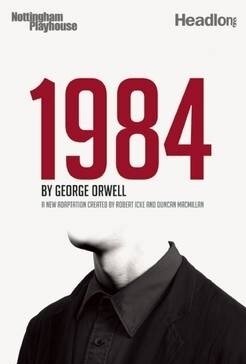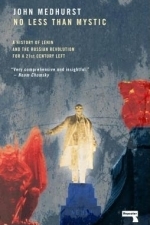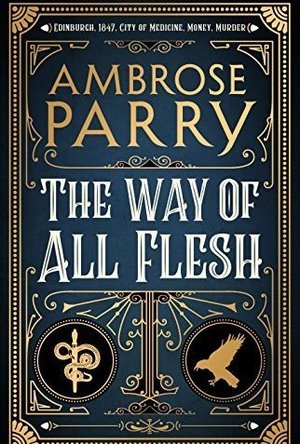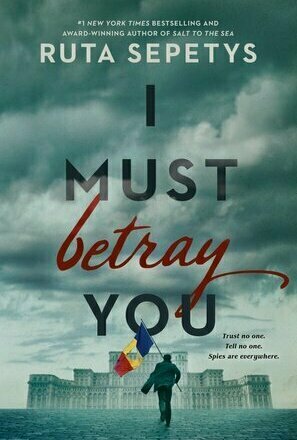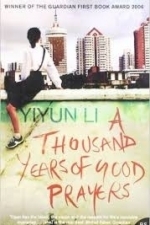Search
Search results
Lyndsey Gollogly (2893 KP) rated Subversive (The Warrior book 3) in Books
Apr 17, 2022
66 of 230
Kindle
Subversive (The Warrior book 3)
By Rebecca Royce
⭐️⭐️
Rachel Clancy should never be counted out. She's a fighter and fighters never quit. Her destiny is to lead in a world filled with vampires and werewolves--void of romance and flowers. In charge of a secret revolution that could change her home forever, she's forced to battle and vanquish any threat to her friends and family. But no matter how many times she's won, the evil that threatens her never forgets her name.
Life is a continuous battle that never ends.
Especially for Rachel...
Oh dear! I’ve been enjoying this series but this one I just couldn’t settle with Rachel was a bit whiney and it didn’t seem to gel like the other books. The ending was completely what sideswiped me I’m not sure what to make of it all. Usually Rebecca’s books have me loving them but this just threw me. I’m confused.
Kindle
Subversive (The Warrior book 3)
By Rebecca Royce
⭐️⭐️
Rachel Clancy should never be counted out. She's a fighter and fighters never quit. Her destiny is to lead in a world filled with vampires and werewolves--void of romance and flowers. In charge of a secret revolution that could change her home forever, she's forced to battle and vanquish any threat to her friends and family. But no matter how many times she's won, the evil that threatens her never forgets her name.
Life is a continuous battle that never ends.
Especially for Rachel...
Oh dear! I’ve been enjoying this series but this one I just couldn’t settle with Rachel was a bit whiney and it didn’t seem to gel like the other books. The ending was completely what sideswiped me I’m not sure what to make of it all. Usually Rebecca’s books have me loving them but this just threw me. I’m confused.
Lyndsey Gollogly (2893 KP) rated Stranded (The Shorten Chronicles 1) in Books
Oct 3, 2023
139 of 235
Kindle
Stranded ( The Shorten Chronicles 1)
By Rosalind Tate
⭐️⭐️⭐️
Sophie Arundel is stranded in history, stuck in a grand house in 1925 England. Thankfully, she has her faithful dog with her. Oh, and fellow student Hugo: fit, privileged, and annoying.
Baffled by upper-class rules, courted by boring suitors, Sophie is desperate to get back to the twenty-first century. But the only way home is through a hidden portal — and to unlock its secrets, she must work with Hugo.
As one clue leads to another, Sophie and Hugo discover that history is unfolding differently. Mobs rule the streets. And when chaos turns into a deadly revolution, anyone in a grand house is fair game.
Sophie and Hugo are running out of time…
It was good I enjoyed it I’m a huge fan of this kind of time travel especially to a time I really am fascinated with. I’m looking forward to book 2.
Kindle
Stranded ( The Shorten Chronicles 1)
By Rosalind Tate
⭐️⭐️⭐️
Sophie Arundel is stranded in history, stuck in a grand house in 1925 England. Thankfully, she has her faithful dog with her. Oh, and fellow student Hugo: fit, privileged, and annoying.
Baffled by upper-class rules, courted by boring suitors, Sophie is desperate to get back to the twenty-first century. But the only way home is through a hidden portal — and to unlock its secrets, she must work with Hugo.
As one clue leads to another, Sophie and Hugo discover that history is unfolding differently. Mobs rule the streets. And when chaos turns into a deadly revolution, anyone in a grand house is fair game.
Sophie and Hugo are running out of time…
It was good I enjoyed it I’m a huge fan of this kind of time travel especially to a time I really am fascinated with. I’m looking forward to book 2.
Mark @ Carstairs Considers (2099 KP) rated 1984 Nineteen Eighty-Four in Books
Mar 9, 2018
Travel to Oceania in this look at a world that was taken over by socialists. We follow Winston Smith as he lives out his life under the constant watchful eye of Big Brother. His vague memories of freedom lead him to hope for another revolution. Can he help in some way? What will happen when he starts an affair with a beautiful woman?
I read this book in high school, and it is just as sobering today as it was back then. Yes, as a novel it is a bit slow, but it does draw you in enough to really drive home the points Orwell is making. Sadly, as our technology begins to catch up to the technology Orwell created, our country begins to walk down this path as well thanks to politicians on both sides. This is a warning we still need to heed today.
You can read my full review at <a href="http://carstairsconsiders.blogspot.com/2015/04/book-review-1984-by-george-orwell.html">Carstairs Considers</a>.
I read this book in high school, and it is just as sobering today as it was back then. Yes, as a novel it is a bit slow, but it does draw you in enough to really drive home the points Orwell is making. Sadly, as our technology begins to catch up to the technology Orwell created, our country begins to walk down this path as well thanks to politicians on both sides. This is a warning we still need to heed today.
You can read my full review at <a href="http://carstairsconsiders.blogspot.com/2015/04/book-review-1984-by-george-orwell.html">Carstairs Considers</a>.
Hazel (1853 KP) rated No More Than Mystic in Books
Dec 7, 2018
<i>I received this book for free through Goodreads First Reads.
No Less Than Mystic: A Story of Lenin and the Russian Revolution for a 21st Century Left</i> by John Medhurst is an in-depth historical and political insight to the truth about what really happened in Russia before, during and after the Bolshevik insurrection of October 1917. Beginning with the end of the Tsars rule and ending with Stalinism, Medhurst unearths the fact from the fiction, challenging the information the world has been led to believe.
As mentioned in Medhurst lengthy introduction, previous books on the subject are often biased and inaccurate. Swayed by political beliefs, authors and historians often pass judgement by using the information they have chosen to believe, dismissing anything that goes against their viewpoint. In this book, Medhurst filters through these false histories, preferring to cite from publications written at the time rather than those penned by people who did not witness the events between 1903 and 1921.
Medhurst’s narrative is more political than historical, often going off on tangents. In order to for the reader to obtain some sort of connection with the events described, the author contrasts them with more recent occurrences that readers may have observed or at least understand. These include the British miner’s strike, feminist movements, the Greek economy and a variety of other capitalist struggles.
The Russian revolution is a complex affair that cannot easily be condensed. As a result, <i>No More Than Mystic</i> exceeds 600 pages and covers every event, no matter how big or small, that contributed to the rise of USSR. Russia was a dangerous place to live during the 20th century, particularly when Leninism spiralled into Stalinism. However, Leninism was not all the history books make it out to be.
During GCSE History, one teacher led his class to believe that Lenin was good and Stalin was bad, however, the reality was much more complicated than that. Lenin was not the good guy that many painted him to be. Thousands died as a result of his policies from both execution and starvation. Yet, at the same time, Medhurst tries to point out the reasoning behind the ideas of the communist rulers, refusing to give a personal opinion without laying bare both sides of the argument.
Although this book is accurate and educational, it is not the easiest to sit down and read. Extensive chapters full of mind-numbing information detract from the comprehensive insightfulness of the content. Notwithstanding the fact that the inclusion of contrasting capitalist examples helps the reader to establish some form of familiar ground, the sudden changes in topic, location and time period are often confusing and hard to follow.
<i>No Less Than Mystic </i>is for the intellectual person with a great interest in 20th-century Russian history and communist affairs. Without any prior education on the topic, this book will not mean anything. It attempts to challenge the ingrained beliefs people have about what happened during the Bolshevik insurrection. Those who do not know anything will not benefit from the confronting enlightenment.
In all, <i>No Less Than Mystic</i> is a well-researched academic text that brings a fresh history of Lenin and the Russian Revolution. Those who want an unbiased truth need to read this book and be sceptical about any other on the topic. In order to form opinions, one must know the facts.
No Less Than Mystic: A Story of Lenin and the Russian Revolution for a 21st Century Left</i> by John Medhurst is an in-depth historical and political insight to the truth about what really happened in Russia before, during and after the Bolshevik insurrection of October 1917. Beginning with the end of the Tsars rule and ending with Stalinism, Medhurst unearths the fact from the fiction, challenging the information the world has been led to believe.
As mentioned in Medhurst lengthy introduction, previous books on the subject are often biased and inaccurate. Swayed by political beliefs, authors and historians often pass judgement by using the information they have chosen to believe, dismissing anything that goes against their viewpoint. In this book, Medhurst filters through these false histories, preferring to cite from publications written at the time rather than those penned by people who did not witness the events between 1903 and 1921.
Medhurst’s narrative is more political than historical, often going off on tangents. In order to for the reader to obtain some sort of connection with the events described, the author contrasts them with more recent occurrences that readers may have observed or at least understand. These include the British miner’s strike, feminist movements, the Greek economy and a variety of other capitalist struggles.
The Russian revolution is a complex affair that cannot easily be condensed. As a result, <i>No More Than Mystic</i> exceeds 600 pages and covers every event, no matter how big or small, that contributed to the rise of USSR. Russia was a dangerous place to live during the 20th century, particularly when Leninism spiralled into Stalinism. However, Leninism was not all the history books make it out to be.
During GCSE History, one teacher led his class to believe that Lenin was good and Stalin was bad, however, the reality was much more complicated than that. Lenin was not the good guy that many painted him to be. Thousands died as a result of his policies from both execution and starvation. Yet, at the same time, Medhurst tries to point out the reasoning behind the ideas of the communist rulers, refusing to give a personal opinion without laying bare both sides of the argument.
Although this book is accurate and educational, it is not the easiest to sit down and read. Extensive chapters full of mind-numbing information detract from the comprehensive insightfulness of the content. Notwithstanding the fact that the inclusion of contrasting capitalist examples helps the reader to establish some form of familiar ground, the sudden changes in topic, location and time period are often confusing and hard to follow.
<i>No Less Than Mystic </i>is for the intellectual person with a great interest in 20th-century Russian history and communist affairs. Without any prior education on the topic, this book will not mean anything. It attempts to challenge the ingrained beliefs people have about what happened during the Bolshevik insurrection. Those who do not know anything will not benefit from the confronting enlightenment.
In all, <i>No Less Than Mystic</i> is a well-researched academic text that brings a fresh history of Lenin and the Russian Revolution. Those who want an unbiased truth need to read this book and be sceptical about any other on the topic. In order to form opinions, one must know the facts.
Sophia (Bookwyrming Thoughts) (530 KP) rated Marie Antoinette, Serial Killer in Books
Jan 23, 2020
I only picked up <i>Marie Antoinette, Serial Killer</i> for two reasons: 1) Marie Antoinette is a serial killer. I <i>had</i> to see it. 2) I'm in need of a book that's less of a romance. Oh, and I need a break from all of the books out there that do before I blow a gasket. Really, it's for everyone's benefit.
This book is a fantastic break for me – it's <b>not a fluffy book set in Paris with a Paris romance</b> (though there <i>is</i> a sort-of Paris romance I'm totally peachy with), despite the fact Alender starts things off with a gruesome murder involving a head being chopped off by a ghost.
No, I did not actually enjoy reading a person getting her head chopped off by a flying broken mirror shard caused by a ghost. I might be a ninja and secretly evil, but I don't actually enjoy those kinds of things.
France's history in the late 18th century is quite intriguing – from helping the US with the American Revolution against the British and then entering their own Revolution against the monarchy a little over a decade later. Alender's book is <b>full of rich details involving French history and culture circulating the Revolution</b> (despite the fact some facts were liberated by Alender to fit the overall plot of the story) as Colette tours France with her classmates, questions her roots and her friendship with Hannah, and tries to figure out why she's seeing a Marie Antoinette lookalike everywhere.
<b>The amount of French the author uses throughout the book isn't overwhelming</b> – it's enough to keep the intrigue, but not enough where it'll be overly confusing and categorizing the book as a piece of French literature. Then again, it's probably helpful when 1) the main character isn't entirely proficient at French, and 2) the romance languages are so similar, I pretty much understand the basis of the conversations with my sliver understanding of Spanish and Italian.
On the overall basis of the book being well written, I had mixed feelings for Colette for awhile – she's both likable and not likable at the same time. She's not likable because <b>she just seems to have a very snobby attitude of sorts, tries too hard to fit in with the rich and wealthy at her private school, and spends her time being a doormat in the beginning of the book for fear of facing Hannah's wrath</b>. As the book goes on and everyone makes Colette questions her friendship with Hannah, Colette slowly becomes likable – someone who isn't snobby after all, and her ending with Hannah is quite fantastic. Of course, it does become a little obvious there's some sort of gap between their friendship (and growing) since Colette secretly rebels at times without Hannah's knowledge.
All in all, <i>Marie Antoinette, Serial Killer</i> is <b>a book about deception, loyalty, and how even the dead can come back for revenge to complete unfinished business before they can finally rest in peace.</b>
<a href="https://bookwyrmingthoughts.com/review-marie-antoinette-serial-killer-by-katie-alender/"; target="_blank">This review was originally posted on Bookwyrming Thoughts</a>
This book is a fantastic break for me – it's <b>not a fluffy book set in Paris with a Paris romance</b> (though there <i>is</i> a sort-of Paris romance I'm totally peachy with), despite the fact Alender starts things off with a gruesome murder involving a head being chopped off by a ghost.
No, I did not actually enjoy reading a person getting her head chopped off by a flying broken mirror shard caused by a ghost. I might be a ninja and secretly evil, but I don't actually enjoy those kinds of things.
France's history in the late 18th century is quite intriguing – from helping the US with the American Revolution against the British and then entering their own Revolution against the monarchy a little over a decade later. Alender's book is <b>full of rich details involving French history and culture circulating the Revolution</b> (despite the fact some facts were liberated by Alender to fit the overall plot of the story) as Colette tours France with her classmates, questions her roots and her friendship with Hannah, and tries to figure out why she's seeing a Marie Antoinette lookalike everywhere.
<b>The amount of French the author uses throughout the book isn't overwhelming</b> – it's enough to keep the intrigue, but not enough where it'll be overly confusing and categorizing the book as a piece of French literature. Then again, it's probably helpful when 1) the main character isn't entirely proficient at French, and 2) the romance languages are so similar, I pretty much understand the basis of the conversations with my sliver understanding of Spanish and Italian.
On the overall basis of the book being well written, I had mixed feelings for Colette for awhile – she's both likable and not likable at the same time. She's not likable because <b>she just seems to have a very snobby attitude of sorts, tries too hard to fit in with the rich and wealthy at her private school, and spends her time being a doormat in the beginning of the book for fear of facing Hannah's wrath</b>. As the book goes on and everyone makes Colette questions her friendship with Hannah, Colette slowly becomes likable – someone who isn't snobby after all, and her ending with Hannah is quite fantastic. Of course, it does become a little obvious there's some sort of gap between their friendship (and growing) since Colette secretly rebels at times without Hannah's knowledge.
All in all, <i>Marie Antoinette, Serial Killer</i> is <b>a book about deception, loyalty, and how even the dead can come back for revenge to complete unfinished business before they can finally rest in peace.</b>
<a href="https://bookwyrmingthoughts.com/review-marie-antoinette-serial-killer-by-katie-alender/"; target="_blank">This review was originally posted on Bookwyrming Thoughts</a>
Ross (3282 KP) rated The Way of All Flesh in Books
May 31, 2018
Excellent gripping period thriller set in Edinburgh's medical revolution
This tale of murder takes place in mid 19th century Edinburgh, where the city is at the forefront of the world's advances in medicine - both medical practices and procedures and also drugs and anaesthetics. Many nights are spent with some of the city's top surgeons sitting round the dinner table in the post-prandial slumber sampling various substances looking to find the perfect anaesthetic.
Will Raven, a recently qualified doctor, starts a new job as apprentice to Edinburgh's pre-eminent midwifery expert, Dr James Young Simpson. But he has recently found the dead body of a female friend and starts to investigate the mysterious circumstances of her demise.
The book takes several strands: we have the true history of Edinburgh's medical revolution where doctors like Simpson vied to get the job done but also find better ways to do it for their patients, we have the murder mystery angle, we have the capable and frustrated women who are refused to even attempt to do jobs they are clearly able to do, and we have the class system in full evidence and while many go along with it, some people like Simpson try to get past this and make their households more inclusive for all.
The threads are all interwoven brilliantly and combine to give a story that is both thrilling and interesting.
Having read a lot of Chris Brookmyre, I had high expectations for his storytelling and these were more than met with a brilliantly paced and enjoyable page-turner. I believe writing with his wife has helped tone down the language a little and the tone of the dialogue is very different to his previous work.
My one gripe would be that the climax of the story was a little laboured, with every single event, decision and twist explained numerous times from different perspectives. Given I had spotted a number of hints quite early on and knew who the perpetrator was, and was happy to assume certain things had happened, I didn't feel the need to have this confirmed at length in great detail.
Otherwise an excellent book and the start of a new series that I will be avidly waiting for the next instalment of.
Will Raven, a recently qualified doctor, starts a new job as apprentice to Edinburgh's pre-eminent midwifery expert, Dr James Young Simpson. But he has recently found the dead body of a female friend and starts to investigate the mysterious circumstances of her demise.
The book takes several strands: we have the true history of Edinburgh's medical revolution where doctors like Simpson vied to get the job done but also find better ways to do it for their patients, we have the murder mystery angle, we have the capable and frustrated women who are refused to even attempt to do jobs they are clearly able to do, and we have the class system in full evidence and while many go along with it, some people like Simpson try to get past this and make their households more inclusive for all.
The threads are all interwoven brilliantly and combine to give a story that is both thrilling and interesting.
Having read a lot of Chris Brookmyre, I had high expectations for his storytelling and these were more than met with a brilliantly paced and enjoyable page-turner. I believe writing with his wife has helped tone down the language a little and the tone of the dialogue is very different to his previous work.
My one gripe would be that the climax of the story was a little laboured, with every single event, decision and twist explained numerous times from different perspectives. Given I had spotted a number of hints quite early on and knew who the perpetrator was, and was happy to assume certain things had happened, I didn't feel the need to have this confirmed at length in great detail.
Otherwise an excellent book and the start of a new series that I will be avidly waiting for the next instalment of.
Ali A (78 KP) rated I Must Betray You in Books
Feb 7, 2022
Trigger Warnings: blackmailing, manipulation, revolution, shooting, police brutality, government oppression
Set in late 1989 communist Romania, 17-year-old Cristian is forced to become an informer by the secret police in exchange to help his family. While he deals with the guilt and paranoia of being an informer, Cristian also risks everything to let the world know what is happening in Romania. But what is the cost of the revolution?
As usual, another section of history I didn’t really know anything about until Ruta Sepetys wrote a book about it and now I’ll be doing a ton of research about it this weekend. I was in middle school and high school in the 2000s, so I kind of understand why I probably never really learned much about this if they didn’t unseal files for 15 years… though I do remember learning about Nadia Comăneci leaving the country? But I don’t remember Nicolae Ceaușescu or the horrors of his regime.
Rita Sepetys is one of my favorite authors - if she writes it, I know I’m going to read it, get immersed in a new part of history I probably wasn’t aware of, and learn something new. I know Sepetys does a ton of research on each of her books, and this one is no different. She lets you know it is a work of fiction, but that a ton of research went into the novel and then she lists resources at the end of the book. Knowing how much research was done for this and matching it with a narrator who captivates the readers - I couldn’t put this book down.
The chapters were mostly short and a quick read, but that matched with the franticness of Cristian’s life. You slowly see his eyes opening to the fact that what his country is doing to him and his countrymen is not right and how much they had been lied to to keep them in line. You felt the same suspension he felt as he tried to figure out who he could really trust.
Please read this book (and other titles by Sepetys as well) and learn about an aspect of history that most likely wasn’t taught much in school in a way that’s well written and well researched.
Set in late 1989 communist Romania, 17-year-old Cristian is forced to become an informer by the secret police in exchange to help his family. While he deals with the guilt and paranoia of being an informer, Cristian also risks everything to let the world know what is happening in Romania. But what is the cost of the revolution?
As usual, another section of history I didn’t really know anything about until Ruta Sepetys wrote a book about it and now I’ll be doing a ton of research about it this weekend. I was in middle school and high school in the 2000s, so I kind of understand why I probably never really learned much about this if they didn’t unseal files for 15 years… though I do remember learning about Nadia Comăneci leaving the country? But I don’t remember Nicolae Ceaușescu or the horrors of his regime.
Rita Sepetys is one of my favorite authors - if she writes it, I know I’m going to read it, get immersed in a new part of history I probably wasn’t aware of, and learn something new. I know Sepetys does a ton of research on each of her books, and this one is no different. She lets you know it is a work of fiction, but that a ton of research went into the novel and then she lists resources at the end of the book. Knowing how much research was done for this and matching it with a narrator who captivates the readers - I couldn’t put this book down.
The chapters were mostly short and a quick read, but that matched with the franticness of Cristian’s life. You slowly see his eyes opening to the fact that what his country is doing to him and his countrymen is not right and how much they had been lied to to keep them in line. You felt the same suspension he felt as he tried to figure out who he could really trust.
Please read this book (and other titles by Sepetys as well) and learn about an aspect of history that most likely wasn’t taught much in school in a way that’s well written and well researched.
Suswatibasu (1701 KP) rated A Thousand Years of Good Prayers in Books
Sep 21, 2017
Impressive collection of short stories about pre- and post-revolution China
This collection of short stories by Yiyun Li is both charming and a little disconcerting, showing how Chinese citizens attempt to live in a changed consumer communist society. From a gay man attempting to eke out a space for himself after returning from America to China, to those with mental health issues and parents with more than one child, Li showcases a plethora of characters and voices, many reflective of her own experiences.
The first story about an elderly woman trying to work and survive, and feeling love for a young boy after many years of loneliness is poignant and sombre. While the final story is similar to Li's experience of living in America - she is in reality a dissident and at one point couldn't leave the country to collect an award for this book, hence the book is remarkable in the fact that it feels completely plausible. Even more laudable is the fact that she had only learnt English for six years when she wrote the book. It is a wonderful collection of stories.
The first story about an elderly woman trying to work and survive, and feeling love for a young boy after many years of loneliness is poignant and sombre. While the final story is similar to Li's experience of living in America - she is in reality a dissident and at one point couldn't leave the country to collect an award for this book, hence the book is remarkable in the fact that it feels completely plausible. Even more laudable is the fact that she had only learnt English for six years when she wrote the book. It is a wonderful collection of stories.
Brian Kapfer (2 KP) created a post
May 26, 2018
Deborah (162 KP) rated The Beau Monde: Fashionable Society in Georgian London in Books
Dec 21, 2018
Greig's book takes a look at the Beau Monde - the fashionable elite - ranging from the 'Glorious Revolution' up to the early part of the 19th century. The Beau Monde and The Season were instigated by the more important role of parliament following the deposition of James II by his daughter and her husband - William III & Mary II. The peerage would spend a good deal of their time in London attending parliament, and so so social 'Season' was born. It was interesting to see the extent to which politics permeated the fashionable society and the importance of 'gossip' and 'chit chat' which letters from wives to husbands can be full of. The book covers jewellery and dress, exile from the Beau Monde and fraudulent claims to membership, court attendance and much more. Particularly with the clothing and jewellery, I think this would really have been enhanced with coloured plates, but sadly all the illustrations are black and white.
In her introduction, Greig states that this book has grown out of her doctoral thesis on the subject. It is a quite a scholarly read, but not completely inaccessible to the general reader.
In her introduction, Greig states that this book has grown out of her doctoral thesis on the subject. It is a quite a scholarly read, but not completely inaccessible to the general reader.

